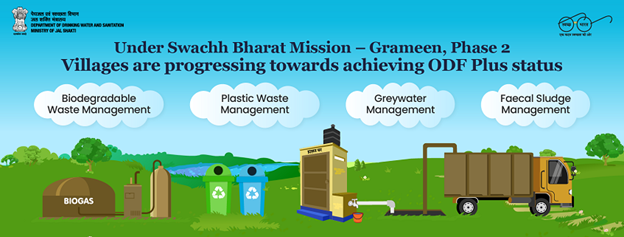Rapid Fire Current Affairs | 11 May 2023
Santiniketan
Santiniketan, initially built by Debendranath Tagore in 1863 and later expanded by his son, Nobel laureate Rabindra Nath Tagore which is also the location of Visva-Bharti University, has been recommended for inclusion in UNESCO's World Heritage List. The recommendation was made by the International Council on Monuments and Sites (ICOMOS), based on a file submitted by the Indian government. ICOMOS, an international cultural body headquartered in France, is dedicated to the preservation and promotion of global architectural and landscape heritage. This recommendation comes as great news for India on the occasion of Rabindranath Tagore's 162nd birth anniversary (9th May 2023). The formal announcement of the nomination will take place at the World Heritage Committee meeting in Riyadh, Saudi Arabia, in September 2023. If Santiniketan’s nomination is accepted, it will become India’s 41st world heritage site and Bengal’s third after Darjeeling Himalayan Railways(1999) and Sundarbans National Park (1987).
Read more: Rabindra Nath Tagore
April 2023: Fourth Warmest April Globally
According to a recent analysis by the European Union's Earth observation program Copernicus Climate Change Service (C3S), April 2023 ranked as the fourth warmest April globally. The month exhibited a temperature deviation of 0.32 degrees Celsius above the 1991-2020 average, showcasing a notable contrast in European air temperatures. C3S highlighted that above-average temperatures were observed in the equatorial eastern Pacific, indicating a potential shift towards El Nino conditions, which typically contribute to warmer global temperatures. Although April 2023 was slightly cooler than the record-breaking April 2016, it closely resembled the temperatures observed in April 2017 and 2018. The analysis also revealed regional variations, with certain areas experiencing colder-than-average conditions while others faced abnormal dryness or increased rainfall. Spain and Portugal encountered their highest April temperatures, while parts of Europe, the United States, and southeastern Asia exhibited dry conditions.
The majority of the ocean surface also witnessed above-average temperatures, particularly notable in areas like the Weddell Sea, the northern Pacific, and the Humboldt Current in the equatorial eastern Pacific. The data from C3S serves as a crucial foundation for informed decision-making regarding climate change mitigation and adaptation strategies on a global scale.
Read more: World Likely to See 2°C Warming by 2050
Swachh Bharat Mission Grameen Phase II
India celebrates a major milestone in its Swachh Bharat Mission Gramin (SBM-G) as 50% of the country's villages have achieved ODF Plus status in phase II of the mission. ODF Plus villages sustain their Open Defecation Free (ODF) status while implementing solid or liquid waste management systems. Over 2.96 lakh villages have declared themselves ODF Plus, a significant step towards achieving the SBM-G phase II goals by 2024-25. Leading states in terms of ODF Plus villages include Telangana, Karnataka, Tamil Nadu, and Uttar Pradesh among the big states, and Goa and Sikkim among the small states.
Under the SBM-G, various initiatives have been undertaken to address waste management and improve sanitation practices. Plastic Waste Management Units and waste collection sheds have been established, promoting the recycling of plastic waste for road construction and fuel usage. Bio-gas/CBG plants and community compost pits have been set up to manage organic waste effectively, contributing to the circular economy and creating clean and green villages. The GOBARdhan initiative focuses on converting waste into resources such as biogas and bio-slurry, fostering entrepreneurship, and promoting green energy investment. Grey water management has been addressed through the construction of soak pits and leach pits, while faecal sludge management involves the desludging of sanitation systems and the establishment of treatment units. These comprehensive efforts have resulted in improved sanitation, reduced environmental impact, and economic benefits for the local community.
Read more: Swachh Bharat Mission Grameen Phase-II
Persona Non Grata
Diplomatic tensions between Canada and China escalated as reciprocal expulsions of diplomats took place, with Canada expelling a Chinese diplomat and China declaring a Canadian diplomat persona non grata.
The concept of persona non grata finds its roots in the Vienna Convention on Diplomatic Relations, a treaty signed in 1961 that governs diplomatic relations between countries. According to Article 9 of the convention, a country has the right to declare any member of a diplomatic staff persona non grata "at any time and without having to explain its decision." This designation carries diplomatic significance and signifies that the person is an unwelcome individual whose presence in the country is prohibited.
The use of persona non grata is not limited to diplomats alone. It can also be applied to foreign individuals who are not part of diplomatic missions but whose entry or presence in a country is deemed undesirable. The Vienna Convention allows countries to exercise this right as a means to express their discontent with the actions of other nations. While the convention does not establish specific criteria for declaring someone persona non grata, historically, it has been used as a form of diplomatic sanction or retaliation.
During the Cold War, it was often used as a "tit-for-tat" measure between the United States and the Soviet Union, with both sides expelling each other's diplomats in response to perceived provocations. Even outside the realm of diplomacy, individuals from the entertainment industry, such as Hollywood actor Brad Pitt, have faced this designation in certain countries due to their involvement in projects deemed politically sensitive.
Read more: Vienna Convention

